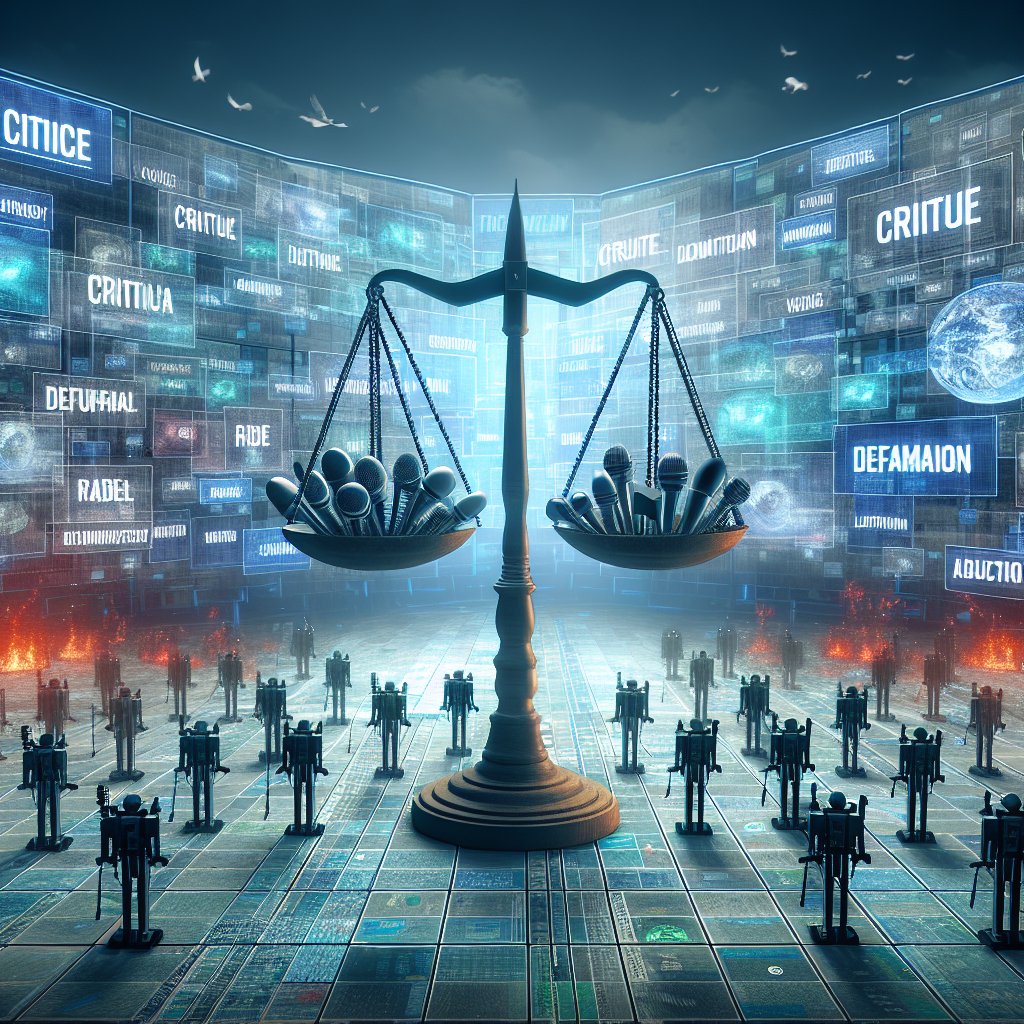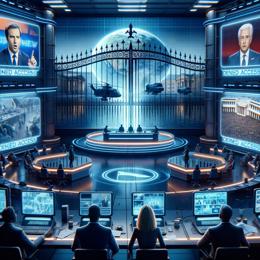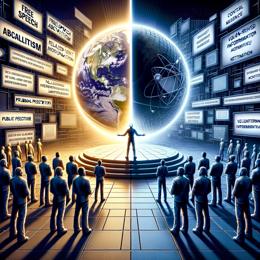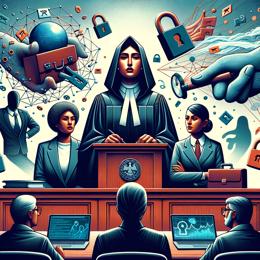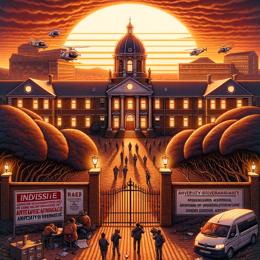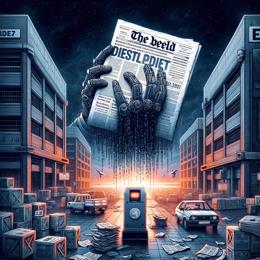Image created by AI
Unpacking the Bias: A Critique of Media Power Dynamics in South Africa
In this digital age, the erosion of credibility within journalism stands as a crucial issue in the context of South Africa's dynamic media landscape. Numerous accusations of bias and propaganda tactics have recently settled over the country's media houses, sparking debates on journalistic integrity that pervade public discourse. This contention came to a head with the Press Council’s ruling against Independent Media in favor of Media24, which was met with a mix of celebration and critique amongst differing media factions.
The core argument espoused by Independent Media sees the Press Council's decisions as emblematic of double standards within the South African journalistic sphere. The complaint revolves around the contrasting treatment—where on one hand, Independent Media faced sanction for their negative portrayal of journalist Karyn Maughan, and on the other hand, Daily Maverick, lauded by some as a defender of a "liberal media establishment," persists unhindered in making comparably controversial assertions.
Detractors argue that there exists a prevalent media bias shielding certain narratives and penalizing others, thereby managing the flow of information to serve an elite's interests. Media Monitoring Africa (MMA), which advocates for fair journalistic practice, has landed in the crosshairs, accused of enabling this partiality.
But the argument hinges upon the dichotomy of critique versus defamation. Evident is the need to dissect the moral responsibility a journalist holds towards the subject of their critique. Misgivings about Independent Media's tactics suggest possible misuse of robust critical discourse when comparing Maughan to Nazi filmmaker Leni Riefenstahl. Conversely, Daily Maverick has drawn comparisons of political leader Julius Malema to dictators like Hitler without facing similar backlash.
These instances raise questions on the boundaries of ethical journalism and the differentiation between legitimate critique and outright misrepresentation. Through these lenses, the South African media backdrop morphs into a battlefield, where the coveted prize is the shaping of public perception and, ultimately, control over the nation's hearts and minds.
This power struggle isn't merely about one media house versus another; it's about the ideologies they represent and the societal echelons they support. The concept of a "liberal media cabal," if proven tangible, implies a concerted effort to maintain a neoliberal hegemony within the country, where rival media voices like that of Independent Media find themselves isolated.
Furthermore, operators within the South African media sphere have been accused of employing a CIA-esque strategy in their narrative framing, using exaggerated political analogies that resonate with a global playbook of discrediting dissidence. It not only challenges the local media's sovereignty but also underscores the far-reaching implications of geopolitical dynamics within domestic journalism.
Out of this melee emerges a plea for equity and unbiased vigilance by media watchdog organizations. The demand is for a press that's truly free; one which reflects the diversity of thought, offers robust critique, and promotes informed, nuanced discourse rather than monochromatic narratives that serve entrenched interests.
Any critique on media integrity must, however, be applied judiciously, aware of the fine line that separates rigorous scrutiny from slanderous campaign. It is in this balanced adjudication where the essence of media ethics lies and where the future of South Africa’s journalism will be determined.
